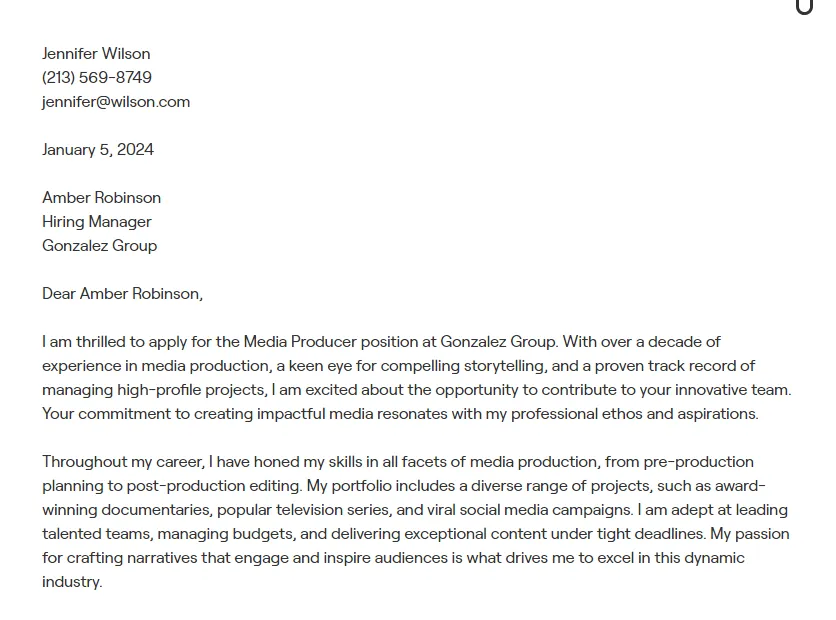What is a Film Producer Cover Letter?
A film producer cover letter is a crucial document that accompanies your resume when applying for film production jobs. It serves as your introduction to potential employers, providing an opportunity to showcase your skills, experience, and passion for the film industry. Unlike a resume, which offers a factual overview of your qualifications, a cover letter allows you to express your personality, explain your career goals, and demonstrate why you are the ideal candidate for the specific role. Think of it as your chance to make a memorable first impression and convince the hiring manager that you are worth considering for an interview. A well-crafted cover letter can significantly increase your chances of landing your dream job in the competitive world of film production.
Key Components of a Film Producer Cover Letter
A compelling film producer cover letter should include several key components to effectively communicate your qualifications and enthusiasm. First, it’s essential to start with professional contact information and a proper greeting. Next, you should highlight your relevant skills and experience, emphasizing how they align with the job requirements. Then, focus on showcasing your accomplishments, preferably with quantifiable achievements to demonstrate your impact. Finally, remember to tailor your letter to the specific job and company, and end with a professional closing and a clear call to action, such as requesting an interview. Each element plays a vital role in presenting you as a strong candidate.
Contact Information and Greeting
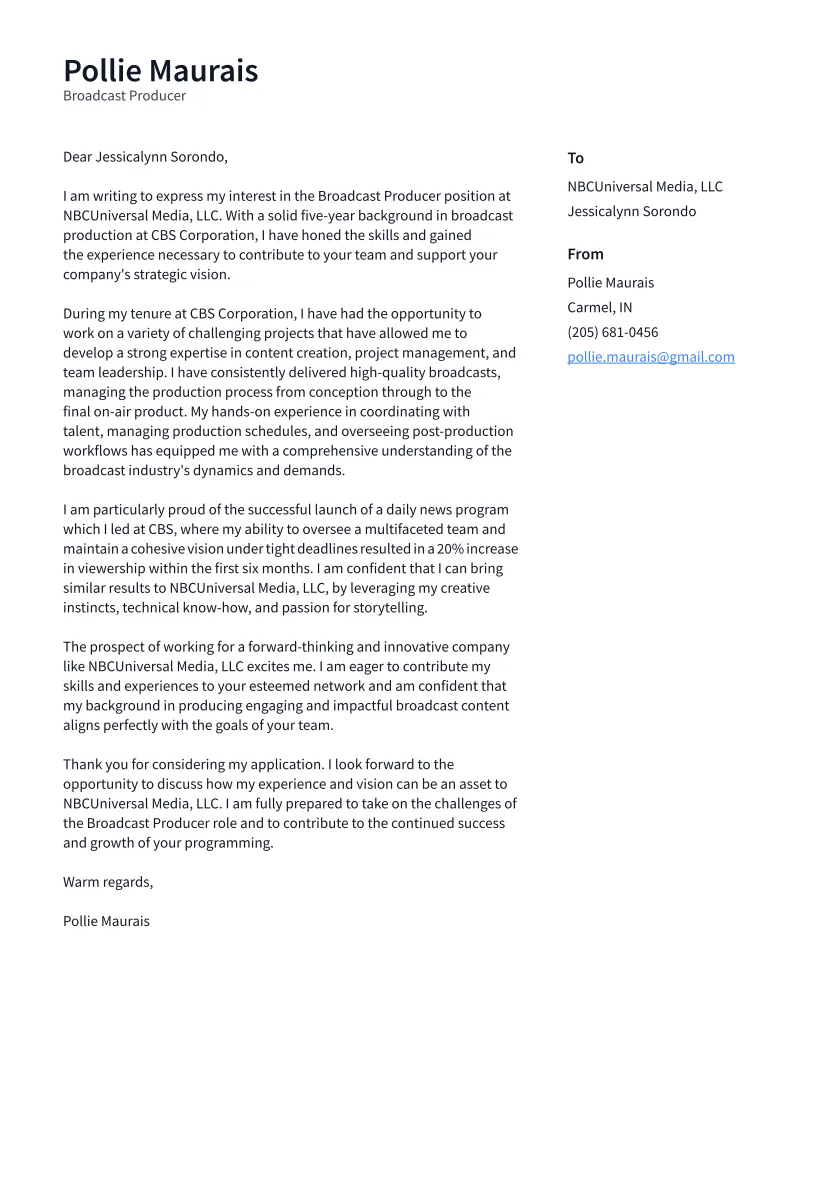
Begin your cover letter by providing your full name, address, phone number, and email address at the top. This ensures that the hiring manager can easily contact you. Following your contact information, address the letter to the hiring manager by name, if possible. Research the company’s website or LinkedIn to find the appropriate contact person. If you cannot find a specific name, use a professional greeting such as “Dear Hiring Manager” or “Dear [Department Name] Team.” Avoid generic greetings like “To Whom It May Concern,” as they can make your letter seem less personal.
Highlighting Your Skills and Experience
In the body of your cover letter, clearly highlight your relevant skills and experience. Refer to the job description and identify the key requirements. Then, provide specific examples from your past projects or roles where you have demonstrated those skills. This could include experience in budgeting, scheduling, team management, fundraising, or script development. Quantify your achievements whenever possible. For example, instead of saying “Managed a film project,” you could say “Managed a film project with a budget of $X, resulting in a Y% increase in revenue.” Tailor this section to match the specific requirements mentioned in the job posting.
Showcasing Your Accomplishments
Go beyond simply listing your job duties. Use your cover letter to showcase your accomplishments. Focus on the positive outcomes of your work and how you have contributed to the success of previous projects. Mention any awards, positive reviews, or significant achievements you have earned. For instance, if you successfully secured funding for a project, mention the amount raised and how you achieved this. If you managed a project that came in under budget or ahead of schedule, highlight those details. This section provides concrete evidence of your capabilities and makes your application more compelling.
Quantifiable Achievements
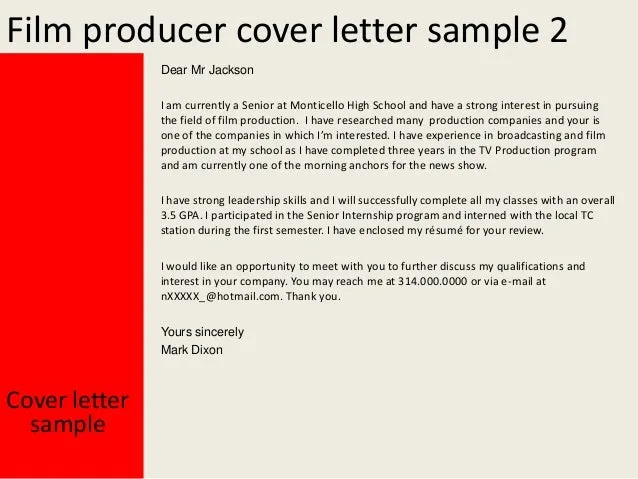
Quantifiable achievements add significant weight to your cover letter. Whenever possible, use numbers and data to demonstrate your impact. This helps potential employers quickly understand the scope of your accomplishments. For example, instead of saying “Improved production efficiency,” you could write “Improved production efficiency by 15%, reducing overall project costs.” Other examples include the number of projects you have managed, the budget size of projects you have handled, or the number of people you have led. Using quantifiable data makes your claims more credible and shows that you understand how to measure and improve performance.
Tailoring Your Letter to the Specific Job
Customizing your cover letter for each job application is crucial. Generic cover letters are easily identifiable and less likely to impress hiring managers. Read the job description carefully and identify the key requirements and responsibilities. Then, tailor your letter to address these points specifically. Highlight how your skills and experience align with the job requirements and provide relevant examples. If the job posting emphasizes a specific skill, such as experience with independent films, make sure to emphasize your relevant experience in that area. This demonstrates that you’ve taken the time to understand the position and the company’s needs.
Researching the Company
Before you write your cover letter, research the company you are applying to. Visit their website, review their past projects, and learn about their company culture. This knowledge will help you tailor your letter and demonstrate your genuine interest in the organization. Mention specific projects or aspects of the company that resonate with you. Show the hiring manager that you’ve done your homework. This will help you to stand out from other candidates and showcase your sincere interest and dedication to the film industry. Understanding the company’s values will also help you to frame your letter in a way that aligns with their vision.
Matching Your Skills to Requirements
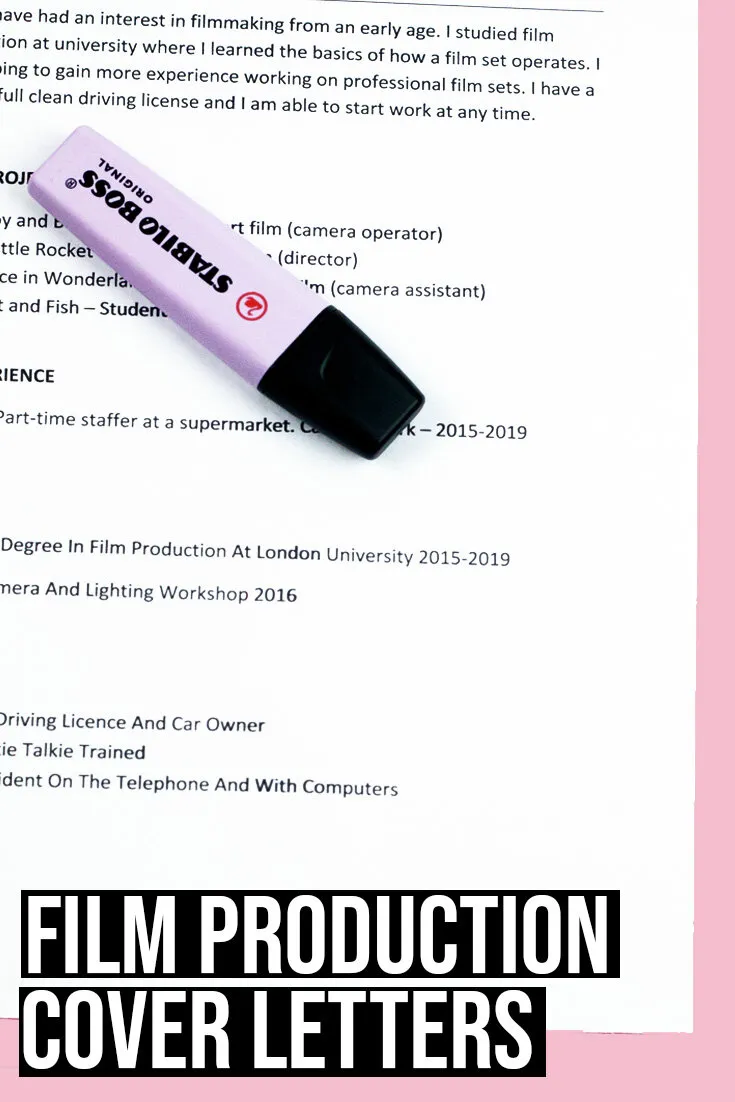
Carefully review the job description and identify the required skills, experience, and qualifications. Then, in your cover letter, explicitly state how your skills and experience match these requirements. Provide specific examples from your past projects that demonstrate your ability to meet each requirement. For instance, if the job description mentions experience in budgeting, describe your experience creating and managing film budgets. Use keywords from the job description to ensure your letter aligns with what the employer is seeking. This will help the hiring manager quickly see that you possess the necessary qualifications for the role.
Emphasizing Your Passion and Enthusiasm
Film production is a competitive industry, and hiring managers want to see that you have a genuine passion for the work. Use your cover letter to express your enthusiasm and excitement about the opportunity. Explain why you are interested in the company and the specific role. Share your career goals and how this position fits into your long-term aspirations. This shows that you are not just looking for a job, but that you are truly invested in the film industry. Conveying your passion can help you make a lasting impression and differentiate yourself from other candidates.
Professional Closing and Follow-up
Conclude your cover letter with a professional closing. Thank the hiring manager for their time and consideration. Reiterate your interest in the position and state that you are available for an interview. Include a call to action, such as “I am eager to discuss my qualifications further in an interview” or “I look forward to hearing from you soon.” Provide your contact information one last time. After submitting your application, follow up with the hiring manager a week or two later to reiterate your interest and inquire about the status of your application. This demonstrates your professionalism and dedication.
Proofreading and Editing
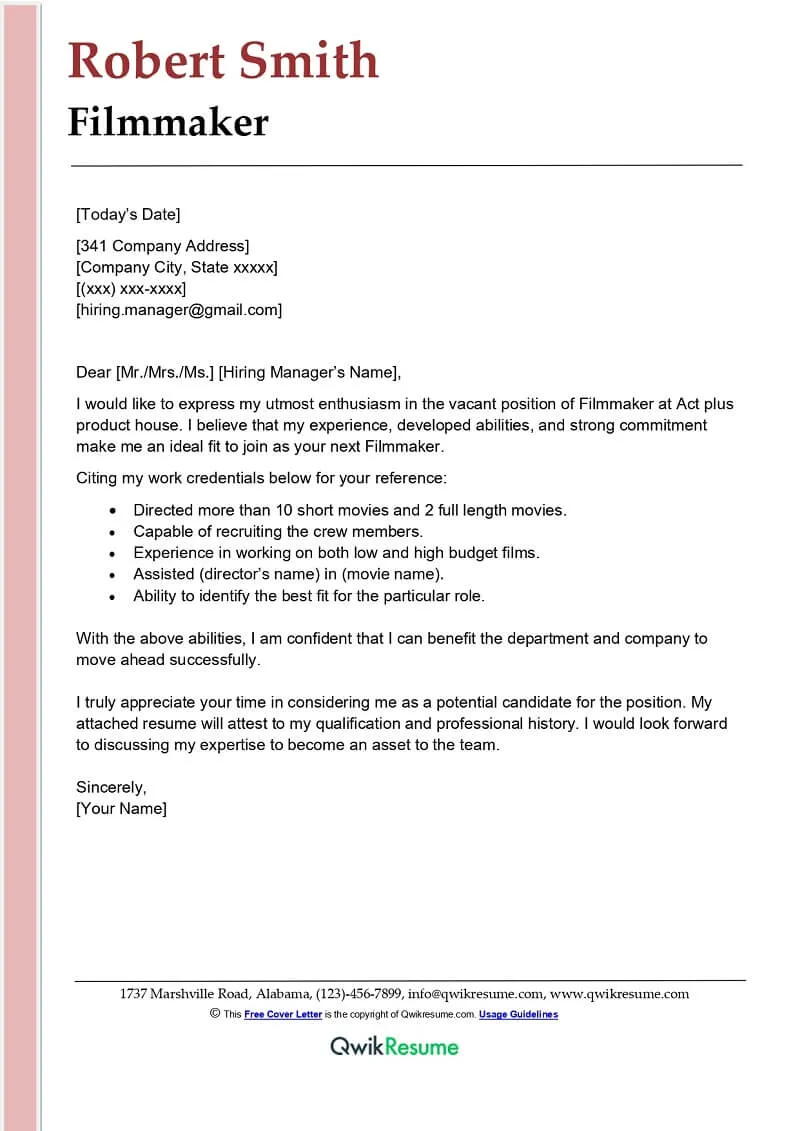
Before submitting your cover letter, carefully proofread and edit it to ensure it is free of errors. Typos, grammatical mistakes, and formatting errors can create a negative impression. Read your letter aloud to catch any awkward phrasing or sentence structure issues. Have a friend or colleague review your letter to get a fresh perspective. A polished, error-free cover letter demonstrates your attention to detail and professionalism. Using tools like Grammarly can help you catch any errors you may have missed. Remember, your cover letter is a reflection of your professionalism.
Cover Letter Formatting Tips
Follow these formatting tips to make your cover letter easy to read and visually appealing. Use a professional font such as Times New Roman, Arial, or Calibri, and maintain a font size between 10 and 12 points. Use single-spacing within paragraphs and double-spacing between paragraphs. Keep your letter concise, ideally no more than one page. Use clear headings and bullet points to organize your information and make it scannable. Ensure your letter is well-structured, with a clear introduction, body, and conclusion. Using a clean format will present you as organized and professional.
Common Mistakes to Avoid
Avoid common mistakes that can undermine your cover letter and hurt your chances of landing an interview. Avoid generic greetings or overly formal language. Make sure to avoid excessive use of jargon and instead use clear and concise language. Don’t include information that is irrelevant to the job. Proofread carefully for grammatical errors and typos. Tailor your letter to each job application, avoid sending a generic letter. Make sure to avoid negative language or complaining about previous employers. These mistakes can make your letter less impactful.
Overusing Technical Jargon
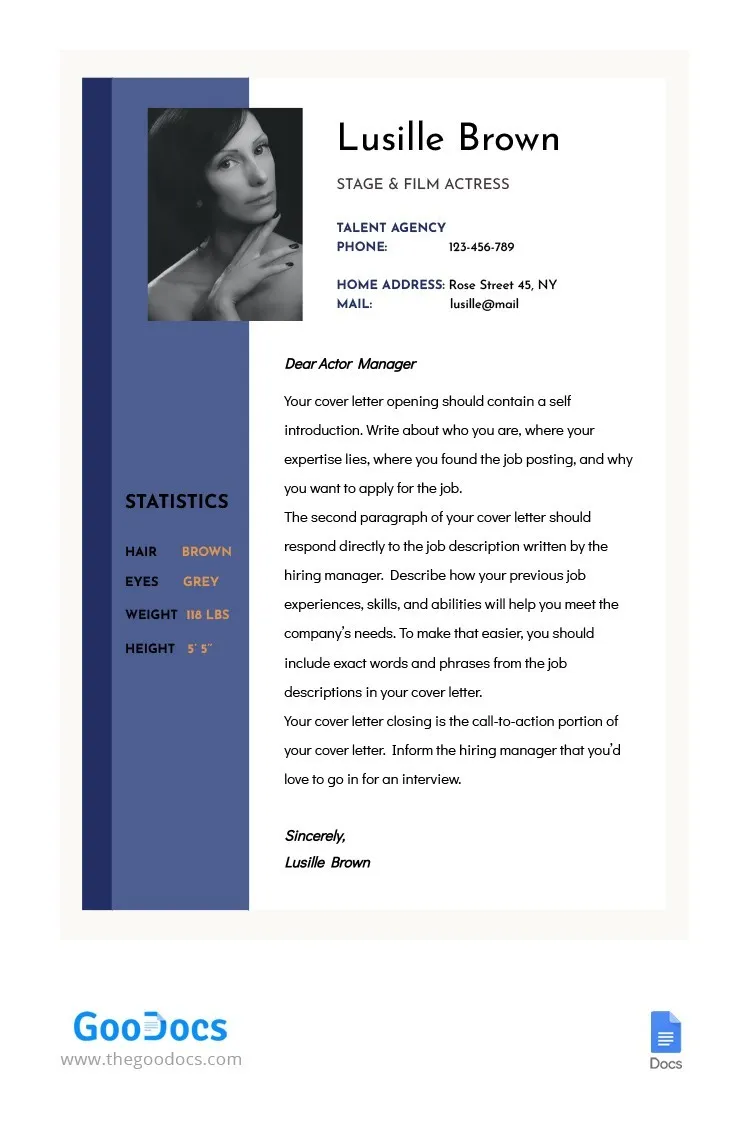
While it is important to demonstrate your knowledge of the film industry, avoid overusing technical jargon in your cover letter, especially if the hiring manager may not be familiar with it. Write in a clear and concise manner. If you use technical terms, define them briefly to ensure the reader understands your meaning. The goal is to communicate your skills and experience effectively. Instead of using complicated language, aim for clarity and professionalism. This will make your letter accessible to a wider audience and showcase your ability to communicate effectively.
Failing to Tailor the Letter
One of the most common mistakes is failing to tailor your cover letter to the specific job. Sending a generic letter will show the hiring manager that you have not invested the time and effort to understand the position. Always read the job description carefully and identify the key requirements and responsibilities. Tailor your letter to address these points directly. Show how your skills and experience align with the specific needs of the company and the role. Demonstrating that you have taken the time to understand the role is critical.
Lack of Enthusiasm
A cover letter should convey your enthusiasm and passion for the film industry. A lack of enthusiasm can make your letter seem lackluster and uninspired. Show your excitement about the opportunity, the company, and the role. Mention any specific projects that have inspired you. Express your career goals and how the position aligns with your long-term aspirations. Hiring managers are looking for someone who is passionate about the work and eager to contribute to their team. Showing your passion for the industry makes your application much more memorable and appealing.
Film Producer Cover Letter Examples
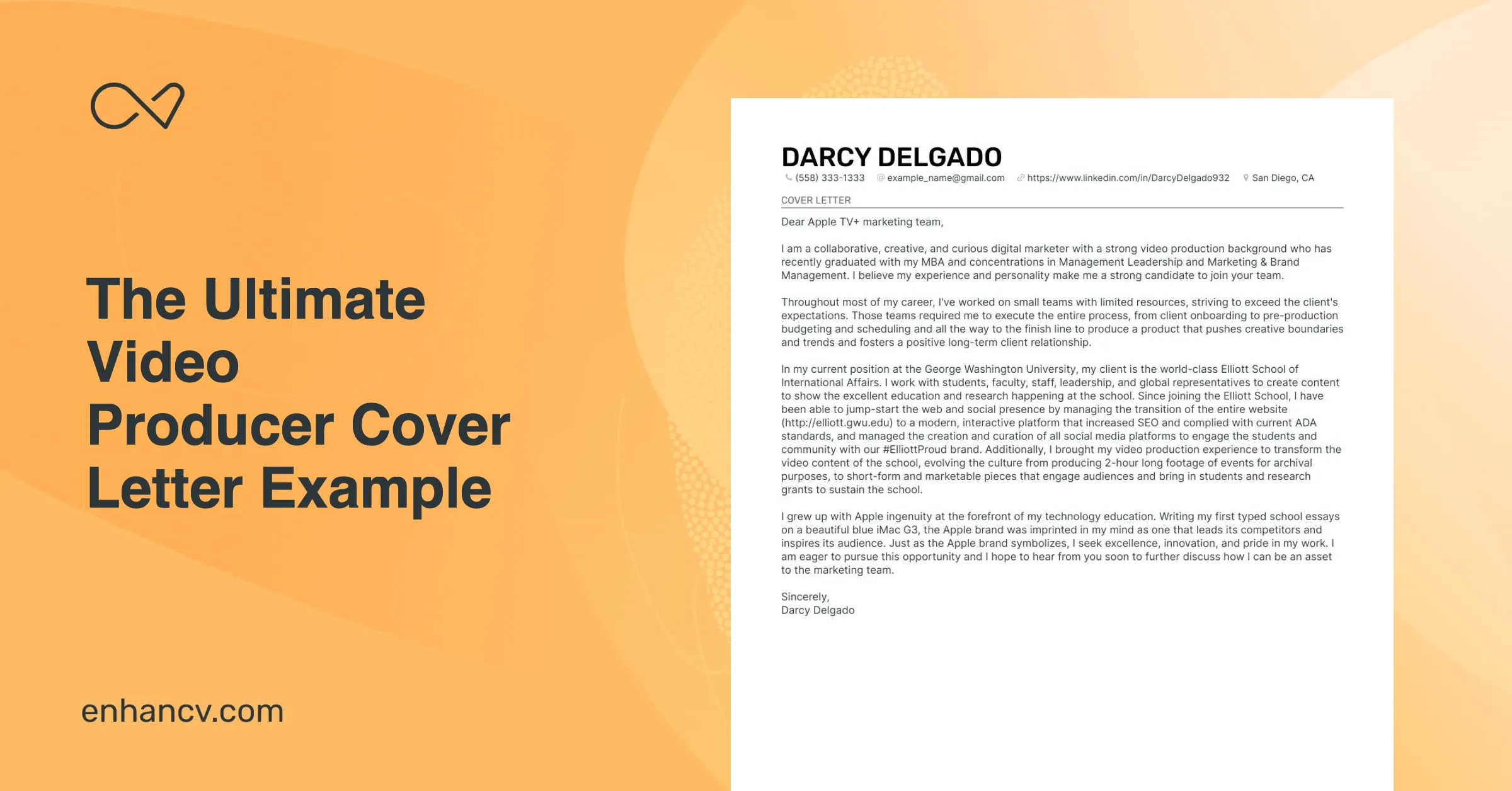
Reviewing film producer cover letter examples can provide valuable insights into structuring your own letter and highlighting your skills. Search online for sample cover letters that match the specific job you’re applying for. Pay attention to how others present their experience, skills, and accomplishments. Notice how they tailor their letters to the specific job and company. Use these examples as a guide, but remember to customize your letter to reflect your own unique qualifications and personality. Ensure your letter reflects your unique strengths and aligns with the job requirements.
